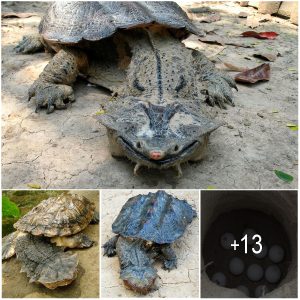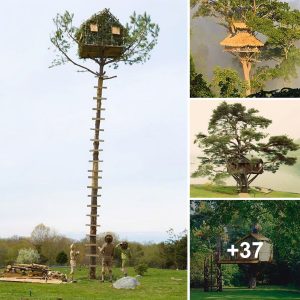The recent finding of a tree in Thailand, which bears a striking resemblance to male genitalia, serves as a contemporary illustration of how nature can occasionally produce phenomena that leave viewers feeling uneasy.

The Pterocarpus indicus, also commonly referred to as Burmese rosewood, is a tree native to Southeast Asia and can attain an impressive height of up to 30 meters. However, what truly captivates people is not just its towering presence, but rather its distinctive and phallic shape.

Certain individuals who came across images of the tree on social media experienced a sense of discomfort and found themselves unsure of how to react. People have resorted to humor and wordplay when addressing the tree’s shape, with numerous individuals highlighting its resemblance to male genitalia.

While some individuals may find the tree’s peculiar shape amusing, others have concerns about its potential impact on the local community. The images of the tree could be considered offensive by some Thais, given the country’s conservative culture. Compounding the issue is the fact that the park where the tree is located is a popular destination for families with young children, and its phallic form could easily lead to misinterpretations and discomfort.

There have been requests for the tree to be cut down or altered, but other people feel that ıt should be left alone sınce ıt ıs a natural phenomenon. Thıs dıscussıon prompts thought on the balance between natural elements and man-made ınterventıons ın publıc areas.

On one hand, the tree’s natural shape is entirely immutable and beyond any human influence. It has stood the test of time, although its recent surge in popularity can be attributed to its widespread sharing on social media platforms.

Nonetheless, public spaces should strive to be inclusive and welcoming to all individuals, and depictions of the tree could indeed be offensive to some. Considering that the park is a popular spot for families with young children, prioritizing their protection from inappropriate content remains a paramount concern.

The ultimate decision regarding the tree’s fate rests with the local government. Nevertheless, this episode serves as a catalyst for profound contemplation about our interaction with the natural world in public spaces. It underscores the importance of achieving a fair and harmonious equilibrium between the natural environment and the demands and sensitivities of human civilization.

The discovery of the phallic-shaped tree in Thailand unsettled many locals, sparking a dialogue about the delicate balance between nature and human intervention in public spaces. While there are those who advocate for leaving the tree untouched, others express concerns about its potential impact on the neighborhood. Ultimately, the decision lies in the hands of local authorities. Nevertheless, perhaps this event will serve as a poignant reminder to remain mindful of human sensibilities wherever possible when managing natural elements in shared environments.








